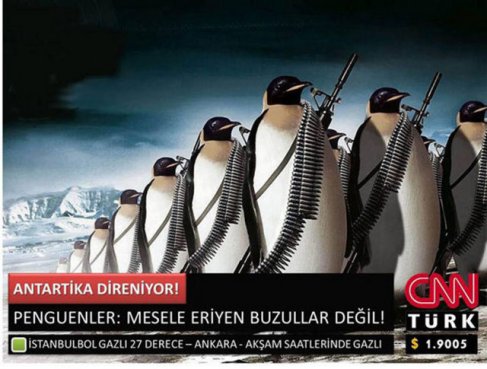In his article “Small Change: Why the Revolution Will Not Be Tweeted,” Malcolm Gladwell claims that social media activism is not better than the traditional activism, because it cannot provide some conditions that traditional activism could, such as ‘High-risk activism’, ‘hierarchical organization’ etc. He claims that even though social network sites have got some advantages for communication, he states that“They are not natural enemy of the status quo,” and ends his article with an example of stealing phone which took by a teen-age girl from a worker of Wall-Street and states that like this example, social media sites can only help to people who already powerful.
I could not be more disagreed with him.
I’m living in a country which has full of hidden information/news from the citizens on purposely, or misinformed them, for years; and my counter argument to Mr. Gladwell is the ‘Gezi Protests’ on 2013.
As a protest which started to protect trees and Taxim Square, Gezi Protests became a legend for all around the world to stand against authority. As the protests have spread all around the country, conventional media did not show the protests, virtually first two weeks, while the protesters and their supporters was trying to show what was going on the streets by using the social media sites such as Facebook and Twitter. Actually, this contradiction between the ‘real’ media and the citizens brought a burlesque situation and social media activists made fun of this pathetic condition.

(Antartica is resisting! Penguins: The issue is not about the melting icebergs!)
If I tell the protests from my perception, I can say that these were the very dark times for Turkish youth. Personally, I could not believe that how we were lonely against the big media companies and the government. We were like the bunch of liars according to media. I remember that beginning of the protests, I talked with my mother who lives in Tekirdağ, not Istanbul, and told her about the protests, how people who got injured, -because I live in Beşiktaş, I could see what was happening clearly- and my mother said that “Don’t dramatize!” She did not have Facebook or Twitter account and she did not see anything about the protests on TV.
After first couple of days, me and my flat-mates started to join the protests too. Before we left the house, we checked Facebook and Twitter and tried to learn where the polices were waiting, which road we could use etc. Even though we could not use our internet on the crowded streets -some people said that the government put signal jammers to the some certain points- we took photographs, videos and collected the evidences that when we got home we could put them on social media sites. I re-opened my Twitter account to reach people who needed informationand I got an offer from Liberatum (an international art community) to inform them about the current situation.
It was happened almost 4 moths ago, but one of the most significant feelings from that times I remember was the feeling of the power. I thought that “Forget the conventional media, we have our own media that we can write, read whatever we want. The government’s censor cannot reach us in there!”
In my opinion, if social media sites did not exist on the times , people did not know what was happening, or could not communicate very well. (One day I read a tweet, there were 4 protests who needed a place and I gave them my address so they came and spent the night at my house.) Also lots of people who did not use social networking sites , only watched and read conventional media tools, thought that there was nothing wrong in the country, as my mother did, but at one point they started to get what is going on, and the big media companies were left no choice but broadcast the protests.
In a conclusion, I found Gladwell’s opinion close-minded and even though social media has lots of disadvantages as he states, in my opinion we should focus on the advantages and try to improve them. Because this is one thing that we’ve got.
